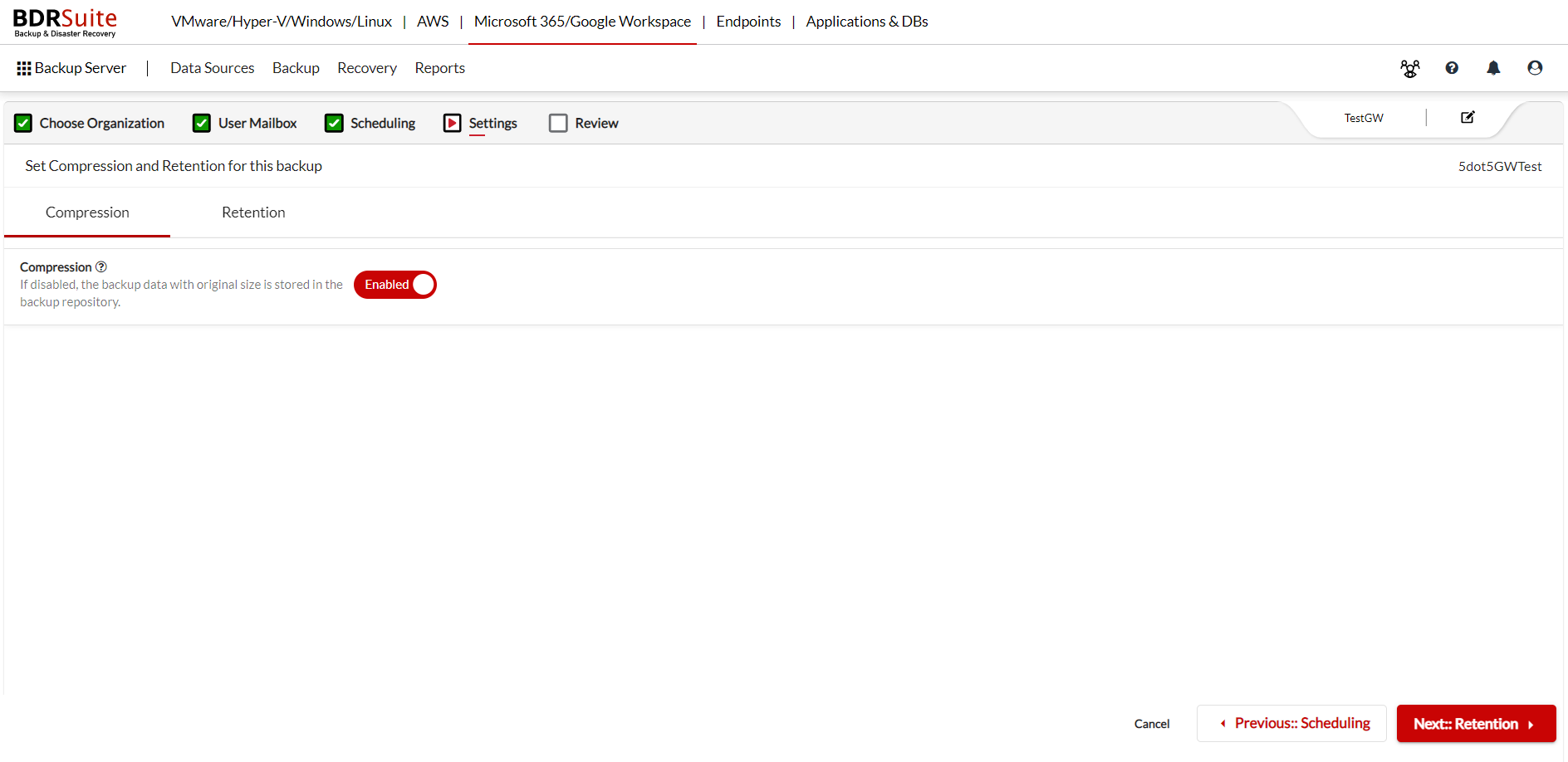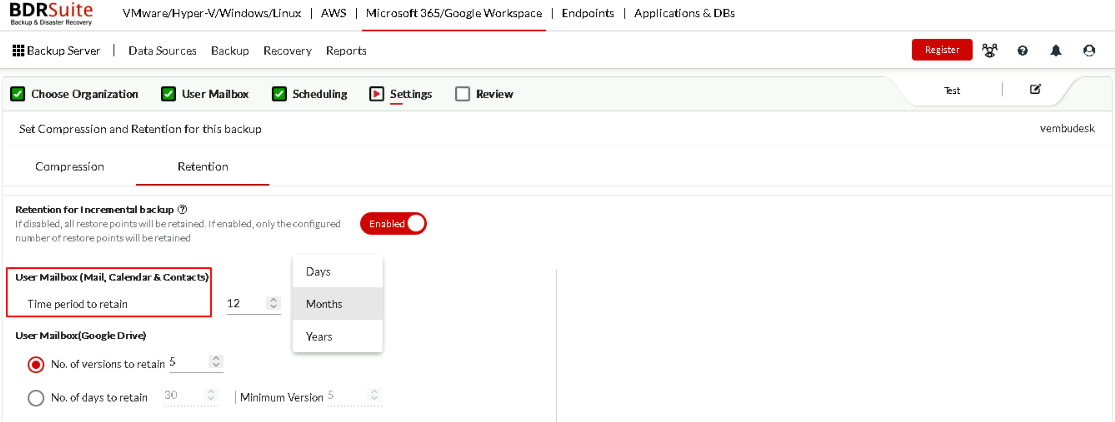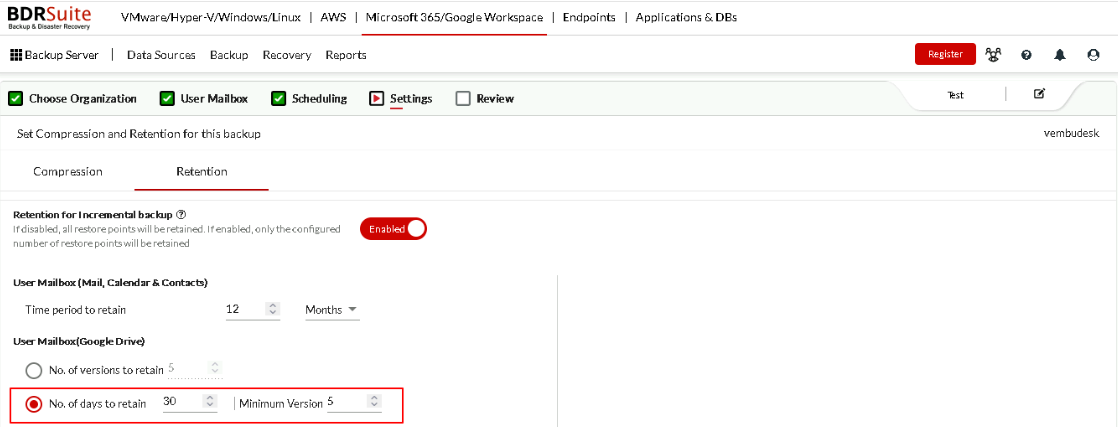Step 5: Backup Job Settings
The Settings option lets up to configure the compression and retention for the backup schedule.
Compression
By default, all the backup data is compressed while storing in the backup repository. If disabled the original size of the backup data will be stored.

Retention
Enabling this option lets you specify the number of restore points you want to retain. If disabled, all restore points will be retained.
- User Mailbox (Mail, Calendar & Contacts) : From the drop-down list select the time to retain. You can choose either days, months, or years.
- User Mailbox (Google Drive) : You can select both the number of versions and number of days to retain the Google Drive items. The minimum retention is 5.
Retention policy defines how long the backed up data to be kept in the backup repository. This allows you to specify the Time period or No. of versions of the item should be retained in the backup repository. If the retention is disabled then all the backed up items will be retained.
The BDRSuite Backup for Google Workspace retains the data at the backup server based on two types of retention:
- Time-Based Retention
- Version-Based Retention
Time based retention
This retention option is applicable for Mails, Calendar and Contacts. This option will work based on the time period of the Mail / Calendar / Contact items.
For Example, If you have selected “Time period to retain” as 12 Months then the Mails, Calendar events and Contacts created/modified/sent/received in the last 12 months will be retained. Mails / Calendar events/ contacts older than 12 months will be marked for deletion and vacuum will happen on the storage and those items will not be listed in the restore page.
The default retention value is 12 Months. The maximum time period to retain is 10 years.

Version based retention
This type of retention option is applicable for Google Drive files. This option will work based on file versions count. File version means, if any changes have been done to the file with respect to its previous backed up file.
For Example, If you have selected “No. of versions to retain” as 5, then the latest 5 versions of the file will be retained. When the sixth version of the file got backed up then the first version of that file will be marked for deletion and vacuum will happen on the storage. Only the latest 5 versions of the files will be listed in the restore page.
This retention type default value is set to ‘5’. Version count runs from ’01’ to ‘100’.

Time + Version based retention
This type of retention option is applicable for Google Drive files. This option will work based on both file versions and time period. File versions will be retained for a specified time period.
For Example, If you have selected “No. of days to retain” as 30 days and “Minimum version” count as 5. When the sixth version of the file got backed up, here the retention condition will be applied only if the first version of the file modified time is older than 30 days then the first version will be marked for deletion and vacuum will happen on the storage.
By default ‘No. of days to retain’ value is set to 30 and Minimum version count is set to 5. The maximum ‘No. of days to retain’ can be set to ‘365’ and the version count runs from ’01’ to ‘100’

